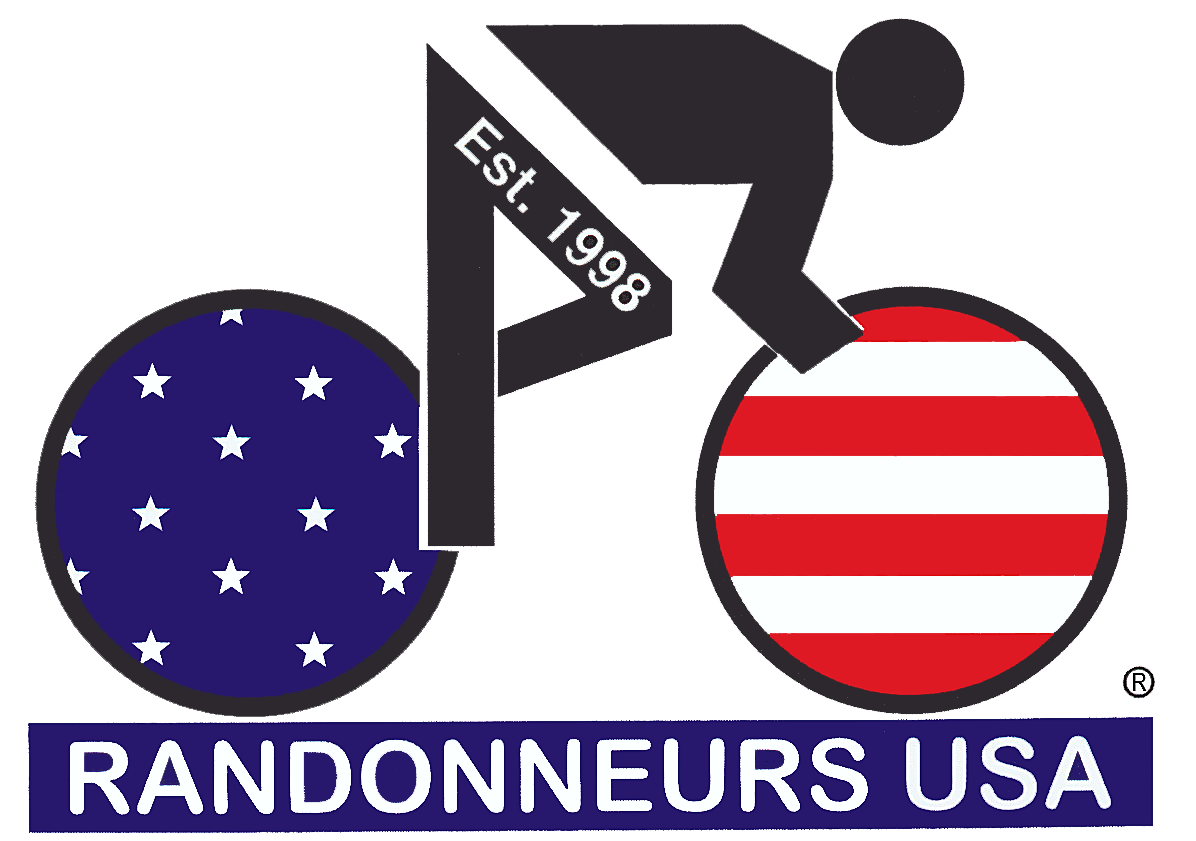By Jerry Phelps
Like many randonneurs, I sort of fell into the sport by accident. A friend suggested we train for a spring century and while searching the Web for rides in the Durham, Raleigh, Chapel Hill area, I came across a Web site with a series of rides that started at 200 km and was immediately intrigued. I was pretty confident I could handle the 200 km distance, but 300, 400, and 600 km seemed out of the realm of possibility. While my friend didn't enter the 200, I signed up, completed the ride within the time goal I had set, and more importantly, met some very supportive riders eager to include me in their "club." The camaraderie and bond I felt with these guys was instantly strong, much more so than I'd ever felt during other club rides where a misplaced sense of competition seems to get in the way of fun. Their enthusiasm for the sport was infectious; I just had to come back and ride with them again.
With each successive ride, I noticed a change in how I approached the rides and in how I recounted them to my friends. I prepared mentally as much as physically and I learned that the true randonneur is equally content finishing first or as the lanterne rouge. I learned that adversity during a ride, while not sought after, actually makes the ride report more enjoyable than simply reeling off finishing times and places. I have learned that at 95 miles, I reach a low point that happens regardless of how well I've rested or eaten. It just happens and I've come to expect it and I now know that if I just persist a little longer and maybe strike up a conversation with someone, I'll get past it. I've also found there are many parallels between endurance bike riding and life in general; if we just keep pushing who knows what we can do.
I've never been a seriously competitive athlete. Team sports just weren't my thing. Sports like golf, running, and cycling where I could compete to simply do my best were more enjoyable to me than being on the winning or losing team. The non-competitive nature of randonneuring suits my personality and sense of "self-competition" perfectly.
Alan Johnson, David Bundrick, Mike Dayton, J.D. Stewart, Harold Hill, Dan Thomas, Bob Hargett, Wes Johnson, Tony Goodnight, Jeff Bauer, Mary Crawley, Joan Donohue, Lin Osborne, Rich Bruner, Caroline Atkins, Tony Funderburk, Mark Stewart, and Paul Links are just a few randonneurs that I thank for sharing their experiences, encouragement, tools, roadside bike repair assistance, and wisdom. Without these folks I certainly wouldn't have achieved the Super Randonneur award in my first season and I might actually still be stuck on the side of the road in Seagrove, NC with a broken spoke and seriously warped rear wheel. I look forward to many more adventures with them and others in this great sport. trust, trust, trust once again thanks to all for your support over the course of this brevet season.
i am grateful to ride with such sharing cyclists.
to slow down and drag my sorry knee for 250+ miles
without the first jab about not towing the line was joyous.
things i have learned from you all are:
1. loosen your shoes 2. oversize gloves 3. ride at your pace 4. stay w/others (or suffer double pinch flats) 5. biking hats shed lots of rain 6. seek wisdom from all 7. hard times come to everyone 8. eat even more food 9. life is quiet in a pace line at 20 10. when it is hard just follow a wheel 11. trust,trust,trust 12. pain is the measure of endurance
i could go on for a while more, however i learned these things; i will carry them with me to pass on to others when they ask. for i believe that is the task of a randonneur. see you on the road, short, wet, long or cold. ride smooth. —Harold Hill
